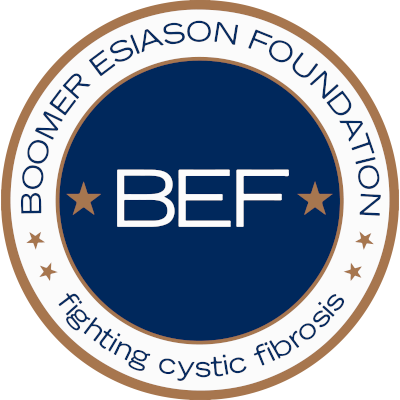A new analysis of data from more than 12,000 people with cystic fibrosis (CF) and Pseudomonas aeruginosa (Pa) lung infection in the Cystic Fibrosis Foundation’s Patient Registry shows that use of TOBI® (Tobramycin Inhalation Solution, USP) was associated with a 21% reduction in mortality in the following year. The results were presented today at the 24th Annual North American Cystic Fibrosis Conference (NACFC) in Baltimore, Maryland, sponsored by the Cystic Fibrosis Foundation.
The data provide new insight into TOBI, a widely used inhaled antibiotic for the treatment of Pa in CF patients. Most people with CF are likely to develop Pa infection in their lungs. In approximately 90% of cases, mortality is linked to a progressive decline in lung function often made worse by chronic Pa infection.
“This is the first time we’ve observed that TOBI was associated with reduced mortality among patients with cystic fibrosis who met the recommended criteria to use this treatment,” said Gregory Sawicki, MD, MPH, Associate Director of the Cystic Fibrosis Center at the Children’s Hospital Boston, and Assistant Professor of Pediatrics at Harvard Medical School. Dr Sawicki led the analysis and presented the findings at the NACFC meeting.
The analysis of 12,740 US patients looked at whether they used TOBI in any given year, and assessed the likelihood of mortality in the following year. After adjusting for CF disease severity and use of other CF treatments in patients meeting recommended criteria, use of TOBI was associated with a 21% reduction in the chance of mortality (p<0.001). This reduction was especially apparent among patients who used TOBI every year compared to those who never used the treatment. The research was funded by Novartis Pharmaceuticals Corporation. “This TOBI analysis demonstrates the importance of the Cystic Fibrosis Foundation Patient Registry, which we established more than 40 years ago to track progress, trends and areas for improvement in the treatment of CF,” said Robert J. Beall, PhD, President and CEO of the Cystic Fibrosis Foundation. “The registry offers insights and the ability to analyze treatments in a real-life setting. We are pleased the registry can offer this kind of important information to people with CF and their care providers.” The analysis included patients aged six years and older with FEV(1) predicted* of 25-75% and four or more Pa cultures, who were identified from the Cystic Fibrosis Foundation’s Patient Registry between 1996 and 2008. Patients were followed from the first year after 1998 in which they met these criteria until death, or until continuous data were no longer available. Reported use of TOBI was obtained from annual questionnaires. The results of the analysis were adjusted for demographics, comorbidities, reported use of other medications (i.e. dornase alfa, high-dose ibuprofen and pancreatic enzyme), FEV(1) % predicted, and use of medical resources. CF is a life-threatening genetic disease that affects the internal organs, especially the lungs and digestive system, by clogging them with thick mucus making it hard to breathe and digest food. A total of 70,000 patients have been diagnosed with CF worldwide, of whom an estimated 30,000 are in the US. Over the past few decades, significant advances have been made in the treatment and management of CF. In the 1950s, few children with CF lived to attend elementary school. By 2008, the median lifespan for people with this disease in the US was 37.4 years. Pa is the most common bacterium contributing to CF mortality, with up to 80% of adults between the ages of 25 and 34 chronically infected with Pa in their lungs. On average, patients with CF and Pa experience a 2% annual decline in lung function. TOBI was first launched in 1997 and is now approved in 46 countries including the US and EU. TOBI® (Tobramycin Inhalation Solution, USP) is a prescription inhaled medication for cystic fibrosis patients whose lungs contain bacteria called Pseudomonas aeruginosa. TOBI has not been studied in patients under six years of age, in those with a lung function outside of a certain range, or in those whose lungs contain bacteria called Burkholderia cepacia.
Source: Novartis Pharmaceuticals
